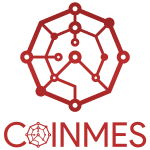Users will be able to easily and securely stake their Polygon MATIC tokens and earn rewards
DUBAI, UAE / ACCESSWIRE / September 2, 2021 / Polygon, an Ethereum-based full-stack scaling solution bringing mass adoption to the Ethereum platform, today announces that Shard Labs, a full-cycle blockchain-focused startup, has chosen Polygon to develop a liquid staking protocol for Polygon’s MATIC token under aegis of Lido, a leading liquid staking protocol and decentralized autonomous organization (DAO).
LIDO for Polygon PoS will soon allow users to easily stake Polygon’s MATIC tokens in a decentralized and secure way, and get stMATIC in return for use in other decentralized finance (DeFi) protocols, while continuing to earn staking rewards.
With Polygon solving problems around speed, network costs, and rising gas fees, users have a more cost-effective and friction-free way to stake, exchange, and withdraw MATIC.
Lido currently holds #8 of all DeFi by TVL ($5b) or 86% market domination on Ethereum which makes it a leader in liquid staking space.
The additional value LIDO can bring to Polygon is decentralizing stake distribution and getting more capital efficiency in the ecosystem – enabling staked MATIC (stMATIC) to participate in DeFi on Polygon.
Sandeep Nailwal, co-founder of Polygon, said: “Shard Labs is a very welcome addition to the burgeoning Polygon ecosystem, and we’re excited to support Shard and their team of developers as they build the future of liquid staking. This is another example of Polygon PoS becoming the platform of choice for scaling Ethereum because of its network composability.”
Polygon PoS is one of the most popular Ethereum scaling solutions, with more than 500 Dapps, far more than any other chain outside Ethereum, and is home to Sushiswap, Curve, Aave, Balancer, Kyber and more. Polygon is also the fastest growing blockchain thanks to its ultra-low transaction fees and sustainable Proof-of-Stake (PoS) consensus mechanism.
Edi Sinovcic at Shard Labs said: “By bringing LIDO to Polygon PoS, we have a solid foundation for building the future of liquid staking, as well as access to a massive user base. To date, one of the shortcomings of the DeFi ecosystem is the inability to generate any returns on staked assets. LIDO on Polygon aims to fix this and we look forward to supporting Polygon’s mission to bring blockchain infrastructure and DeFi to the masses.”
Polygon PoS has become one of the most popular Ethereum scaling solutions, housing more Dapps than other chains outside of Ethereum, at more than 500.
Since April this year, Polygon’s Total Value Locked (TVL) – a metric that denotes market share and growth – grew from $1 billion to nearly $11 billion. The expanding market share of Polygon
indicates the increasing demand for Dapps on faster and more cost-effective blockchain solutions.
About Shard Labs
Shard Labs is solving real-world problems using blockchain technology. Straightforward solutions to complex business challenges.
We are a startup founded in 2019, and since then we accompany our clients on the path to a holistic digital transformation. Profound tech knowledge coupled with business understanding is what allows us to create unique solutions.
About Polygon
Polygon is the first well-structured, easy-to-use platform for Ethereum scaling and infrastructure development. Its core component is Polygon SDK, a modular, flexible framework that supports building and connecting Secured Chains like Optimistic Rollups, zkRollups, Validium, etc, and Standalone Chains like Polygon POS, designed for flexibility and independence. Polygon’s scaling solutions have seen widespread adoption with 500+ Dapps, ~567M+ txns, and ~6M+ daily txns.
If you’re an Ethereum Developer, you’re already a Polygon developer! Leverage Polygon’s fast and secure txns for your Dapp, get started here.
Website | Twitter | Ecosystem Twitter | Studios Twitter | Reddit | Discord | Telegram | Instagram
For more information, please contact:
Pedro Park
Cryptoland PR | http://cryptolandpr.com/
Post Views:
9
Related Stories
I’m a Crypto author and I take great interest in the Blockchain technology. I have been writing since 2014 on various aspects of the Bitcoin protocol and the Ethereum network. I’m also a regular contributor to Decrypt, where I cover news and offer analysis on the latest trends in the cryptocurrency industry.

